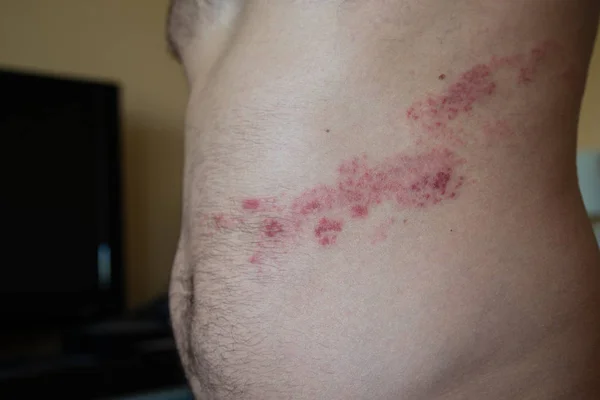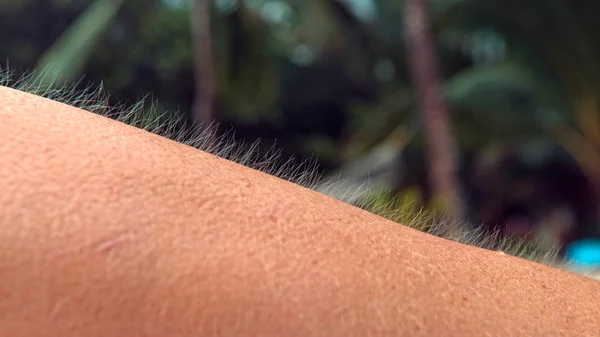Tactile Formication: Is It All in Your Head or a Real Medical Condition?
Have you ever felt the unsettling sensation of tiny insects crawling on your skin, only to look down and find nothing there? This eerie experience is known as tactile formication – and this is a type of (tactile) hallucination where a person perceives the feeling of bugs moving under or on their skin. And this happens without any actual physical cause.
Is this phenomenon purely psychological, or maybe, could it signal an underlying medical issue? In this article, let us consider the possible causes of formication, how it differs from delusional parasitosis, and a few of the more effective ways to treat it.
What Is Tactile Formication?
Formication (derived from the Latin word formica, meaning “ant”) is a specific type of paresthesia. This is an abnormal or strange nerve sensation that can manifest itself as a tingling, itching, or crawling feelings on the skin.

Unlike delusional parasitosis (where a person firmly believes they are infested with parasites despite evidence to the contrary), formication is primarily a sensory issue. Be mindful though that it can sometimes lead to delusional thinking if it is left untreated.
People experiencing formication may scratch or pick at their skin, leading to sores or infections. The condition can be distressing, making it crucial to determine whether it stems from a neurological, psychiatric, or medical cause.
What Are Some Possible Causes of Tactile Formication?
Tactile Formication can arise from a variety of factors. Some of these can occur as a result of drug use, all the way to neurological disorders. Here are some of the most common causes:
1. Substance Use & Withdrawal
- Stimulant Abuse (Methamphetamine, Cocaine): These drugs can overstimulate the nervous system, leading to hallucinations, including tactile sensations like formication.
- Alcohol Withdrawal: Chronic alcohol use and sudden withdrawal can cause delirium tremens (DTs), which may include formication.
- Prescription Medications: Certain drugs (such as Adderall or Ritalin) may trigger paresthesias in some individuals.
2. Neurological & Autoimmune Conditions

- Multiple Sclerosis (MS): Nerve damage in MS can cause abnormal sensations, including crawling feelings.
- Diabetic Neuropathy: High blood sugar damages nerves, sometimes leading to formication.
- Lyme Disease & Shingles: Infections affecting the nervous system may contribute to phantom sensations.
3. Psychiatric & Psychological Factors
- Anxiety & Stress: Heightened stress can amplify nerve sensitivity, making normal skin sensations feel like crawling bugs.
- Schizophrenia & Bipolar Disorder: Tactile hallucinations, including formication, can occur during psychotic episodes.
4. Hormonal & Nutritional Deficiencies
- Menopause (“Menopausal Formication”): Hormonal fluctuations can cause strange skin sensations.
- Vitamin B12 Deficiency: Nerve function relies on B12; a deficiency can lead to paresthesias.
5. Skin & Allergic Reactions
- Dry Skin or Eczema: Irritated skin can mimic crawling sensations.
- Allergic Reactions: Certain medications or chemicals may trigger formication-like symptoms.
How Is The Crawling Skin Effect Treated?
Since formication can stem from multiple causes, treatment depends on the overall underlying issue:
1. Medical Interventions
- Addressing Substance Use: If drug abuse is the cause, detox and rehabilitation are essential.
- Medication Adjustments: Switching or discontinuing medications that trigger formication may help.
- Treating Underlying Conditions: Managing diabetes, MS, or infections can reduce symptoms.
2. Psychiatric & Behavioral Therapies
- Antipsychotics (for psychosis-related formication): Drugs like risperidone may help.
- Cognitive Behavioral Therapy (CBT): Helps patients reframe distressing sensations.
3. Lifestyle & Home Remedies
- Moisturizing & Skin Care: Alleviating dry skin can reduce false crawling sensations.
- Stress Management: Meditation, yoga, and deep breathing can lower anxiety-induced formication.
- Nutritional Supplements: Correcting deficiencies (like B12) may improve nerve function.
Is Formication “All in Your Head”?
While formication can be linked to mental health conditions like anxiety or schizophrenia, it is not always purely psychological. Many cases have clear medical origins, such as – 1) nerve damage, 2) drug effects, or 3) hormonal changes, to name a few.

The key take-away? Formication is a real sensation with real causes – whether they’re neurological, chemical, or psychological. Ignoring it can lead to worsening symptoms, so seeking medical advice is crucial for proper diagnosis and treatment.
Becoming Aware Of What’s Happen
Tactile formication is a bizarre and often distressing experience, but understanding its root cause is the first step toward relief. If you or someone you know struggles with persistent crawling sensations, consult your health-care provider in order to explore potential medical or psychological factors, and relative solutions.
Have you ever experienced formication? Hey – Share your story – we’d love to hear how you managed it!







